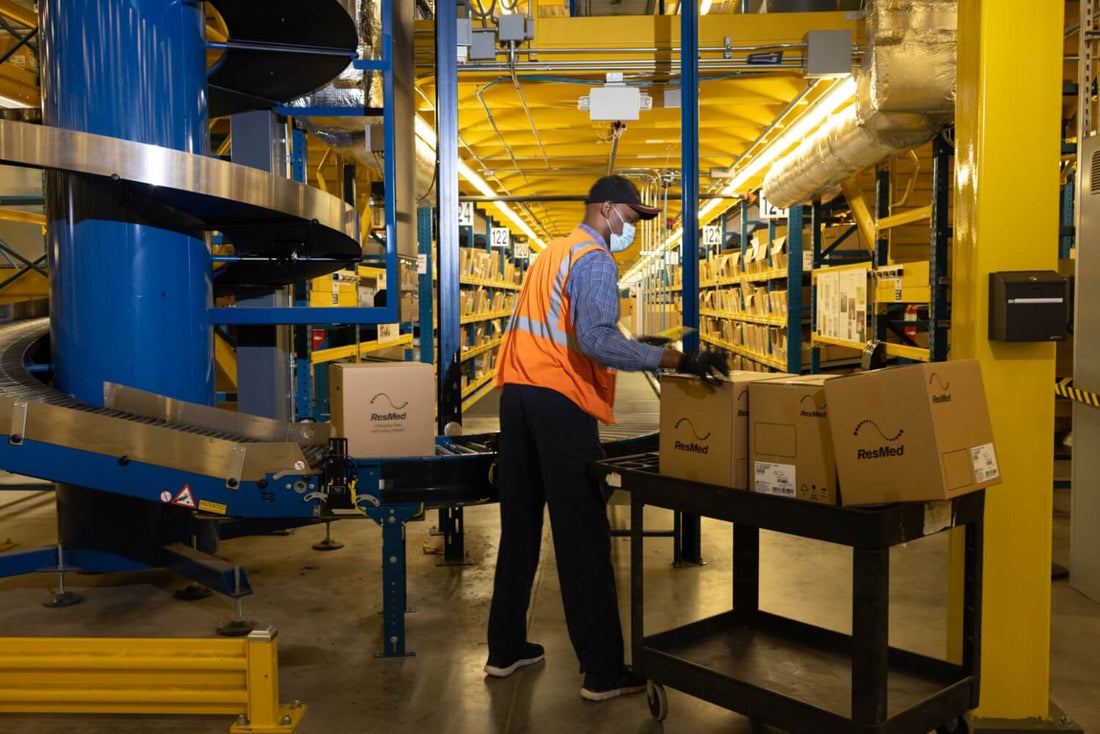
CPAP Shortage And Delays
Share

Some of you may be frustrated by the long wait to get a new CPAP or APAP machine. Wondering why most home care companies don’t have any in stock. It’s a compounded issue caused by a few global factors affecting the CPAP industry, including shipping logistics and parts procurement. ResMed CEO Mick Farrell and Global Operations President Andrew Price did a great job discussing said problems facing the industry in a Youtube video recently posted.
Phillips Respironics Issued a Recall
There’s the much-publicized recall from Philips Respironics earlier this spring. Philips recalled at least 3.3 million devices, which caused them to stop producing DreamSations for new patients so that they may concentrate on repairing or replacing affected machines. This puts them out of the new patient market for at least 12 months, meaning the demand will need to be filled by ResMed. As the number two player in sleep apnea and respiratory devices globally, Respironics left a large demand gap for ResMed to fill.
ResMed Fills The Gap
Naturally, when word of the harmful foam and recall got out, some CPAP users would look for alternative machines as soon as possible. That’s where ResMed comes in as one of the leading CPAP and APAP manufacturers capable of producing large amounts of devices. To remain fair, ResMed has been issuing monthly allocations of CPAP and APAP machines to home care companies like EssentialAir CPAP. Now the supply has been cut to a percentage of what it used to be while demand remains stable.
Why can’t ResMed simply produce more CPAP machines?
While ResMed is focused on producing as many sleep apnea and respiratory care devices as possible, their capacity is limited by the ongoing global parts supply shortage. Namely, the semiconductors found in a variety of modern electronics like cellphones, computers, and cars with driver assistance systems and autonomous driving. Each of those cars needs around 1000 to 3000 chipsets each. Even those newfangled cloud-connected home appliances require semiconductors! ResMed is competing with those large volume manufacturers for the same part and they’re on an allocation-based system as well.
Hard Time Moving Finished CPAP Device
Another hurdle to overcome is simply getting the parts to their production facilities and moving the final machine to patients in need. Airfreight has been hard to find as people are flying less due to COVID-19, which means the rear cargo hold of planes meant for commercial goods is no longer available or in reduced supply. ResMed even had to charter Boeing 777s planes to get the CPAP and APAP machines from their facility in Singapore to North America.
Not to put all their eggs in one basket, ResMed is shipping large 40-foot containers across the ocean, but delays are inevitable at ports because of a global worker shortage. Delivery reliability is an issue as well. Before COVID, containers were delivered on time at a rate of around 75%. Now it is less than 40% of the time.
Triage System Allocation
Once the sleep apnea and respiratory devices have arrived in North America, not all of them will make it onto the shelves of home care companies. Machines will be allocated in a triage-like system, going to patients needing ventilation with COVID-19, with COPD, with neuromuscular disease, overlap syndrome, patients with central sleep apnea, those with complex sleep apnea, and then patients with obstructive sleep apnea.
Though there is a delay and bit of a wait, there’s no time like the present to contact our team of clinicians for more information or to reserve a machine on the wait list.



